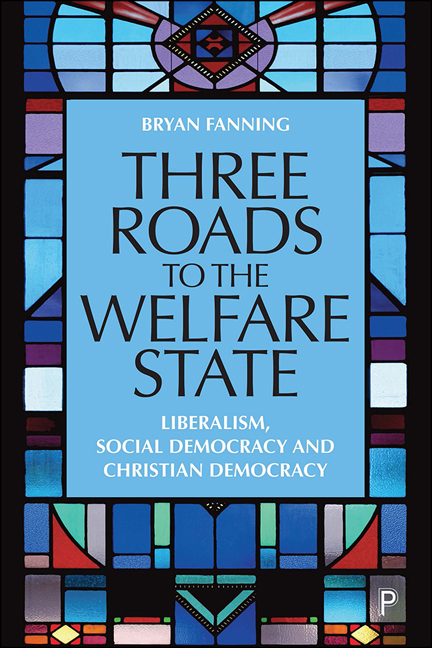Book contents
- Frontmatter
- Contents
- About the author
- Preface
- 1 Three roads
- 2 The invention of laissez faire
- 3 Utopian socialism
- 4 Reform liberalism and technocracy
- 5 Catholic social thought versus modernity
- 6 The case for social democracy
- 7 Social engineering versus democracy
- 8 The rise of neoliberalism
- 9 European Christian democracy
- 10 Legacies
- Notes
- Select bibliography
- Index
8 - The rise of neoliberalism
Published online by Cambridge University Press: 13 May 2022
- Frontmatter
- Contents
- About the author
- Preface
- 1 Three roads
- 2 The invention of laissez faire
- 3 Utopian socialism
- 4 Reform liberalism and technocracy
- 5 Catholic social thought versus modernity
- 6 The case for social democracy
- 7 Social engineering versus democracy
- 8 The rise of neoliberalism
- 9 European Christian democracy
- 10 Legacies
- Notes
- Select bibliography
- Index
Summary
The original intellectual champions of neoliberalism subscribed to an implicit utopian vision where the best of all possible worlds would be one without borders to trade or barriers to the ongoing division of labour and where global peace and prosperity would be spontaneously fostered by economic interdependencies. Neoliberalism emerged in opposition to left and right forms of totalitarianism and isolationism from the 1930s. It was also borne out of claims that the road to a collectivist hell in democratic countries was being paved with the good intentions of liberal reformers and social democrats.
For left critics, neoliberalism came to be seen as a licence for the exploitation of the working classes, for the hollowing out of the middle classes and for the wanton destruction of social cohesion. Thatcherism and Reganomics became watchwords for cuts in public services, deliberately-fostered inequalities and rapacious capitalism. If Friedrich Hayek had not called his 1944 neoliberal polemic The Road to Serfdom, it would have made a good title for a treatise that considered anxieties about free market capitalism from any other perspective. The focus of this chapter is on the emergence of the intellectual case for neoliberalism both before and after the Second World War.
Neoliberalism became prominent as an ideological project in Anglophone countries where totalitarianism had not been experienced at first hand. The main reason for this perhaps was that in such places neoliberalism spoke to a particular intellectual and political tradition that had been given its language and mode of reasoning by Adam Smith. Laissez faire ideology emerged alongside the British industrial revolution and this came to be influentially challenged by later generations of British liberals in what might be likened to a theological adjustment rather than an abandonment of faith.
During the nineteenth century, factories came to be regulated. The industrial working classes became electorally significant. Utilitarian liberals made functionalist arguments for public health measures, for the expansion of education and for the introduction of social insurance. During the economic crises that followed the First World War, protectionist tariff barriers, supported by industrialists as well as by trade unions, replaced international free trade.
- Type
- Chapter
- Information
- Three Roads to the Welfare StateLiberalism, Social Democracy and Christian Democracy, pp. 161 - 182Publisher: Bristol University PressPrint publication year: 2021



